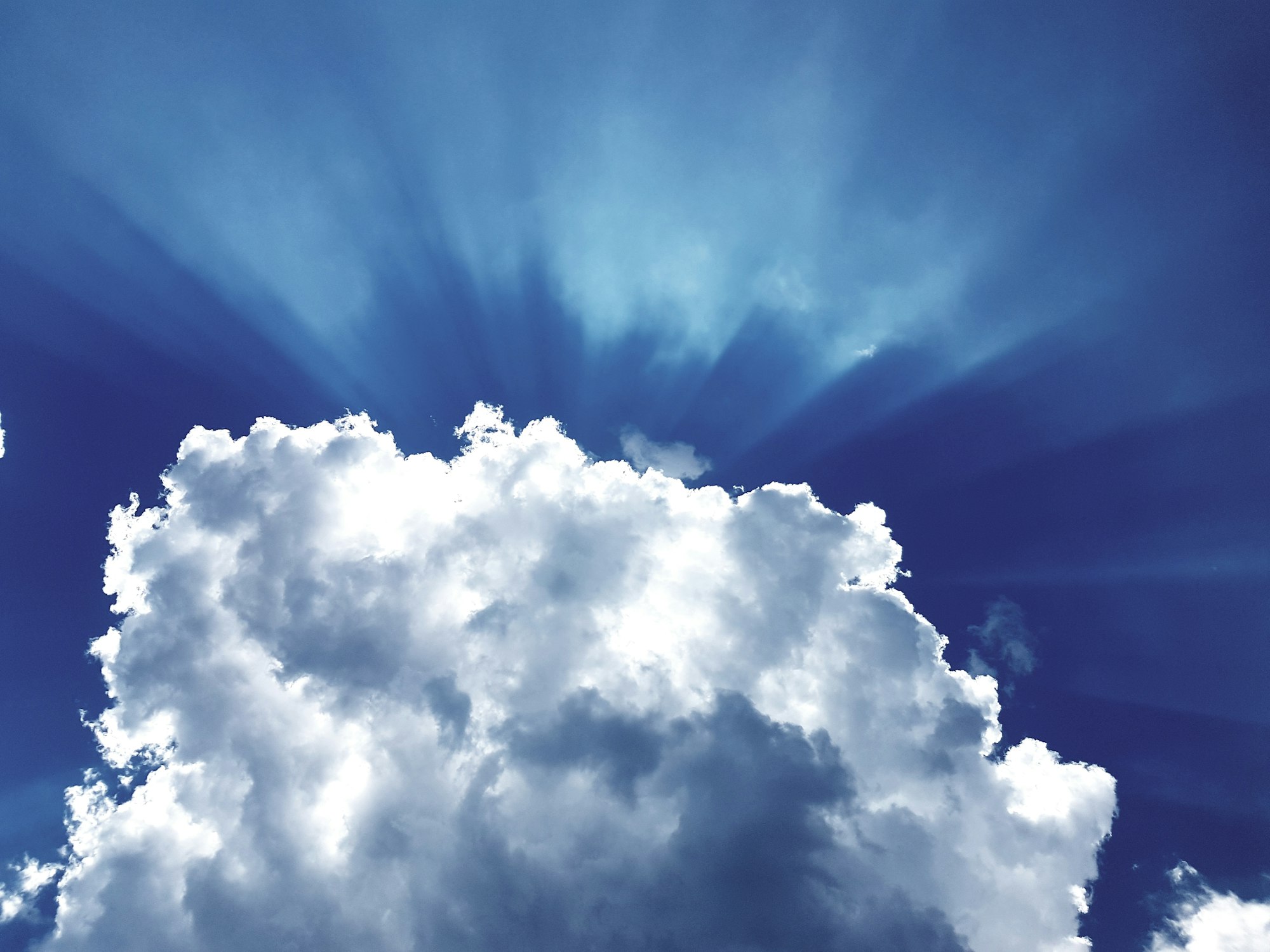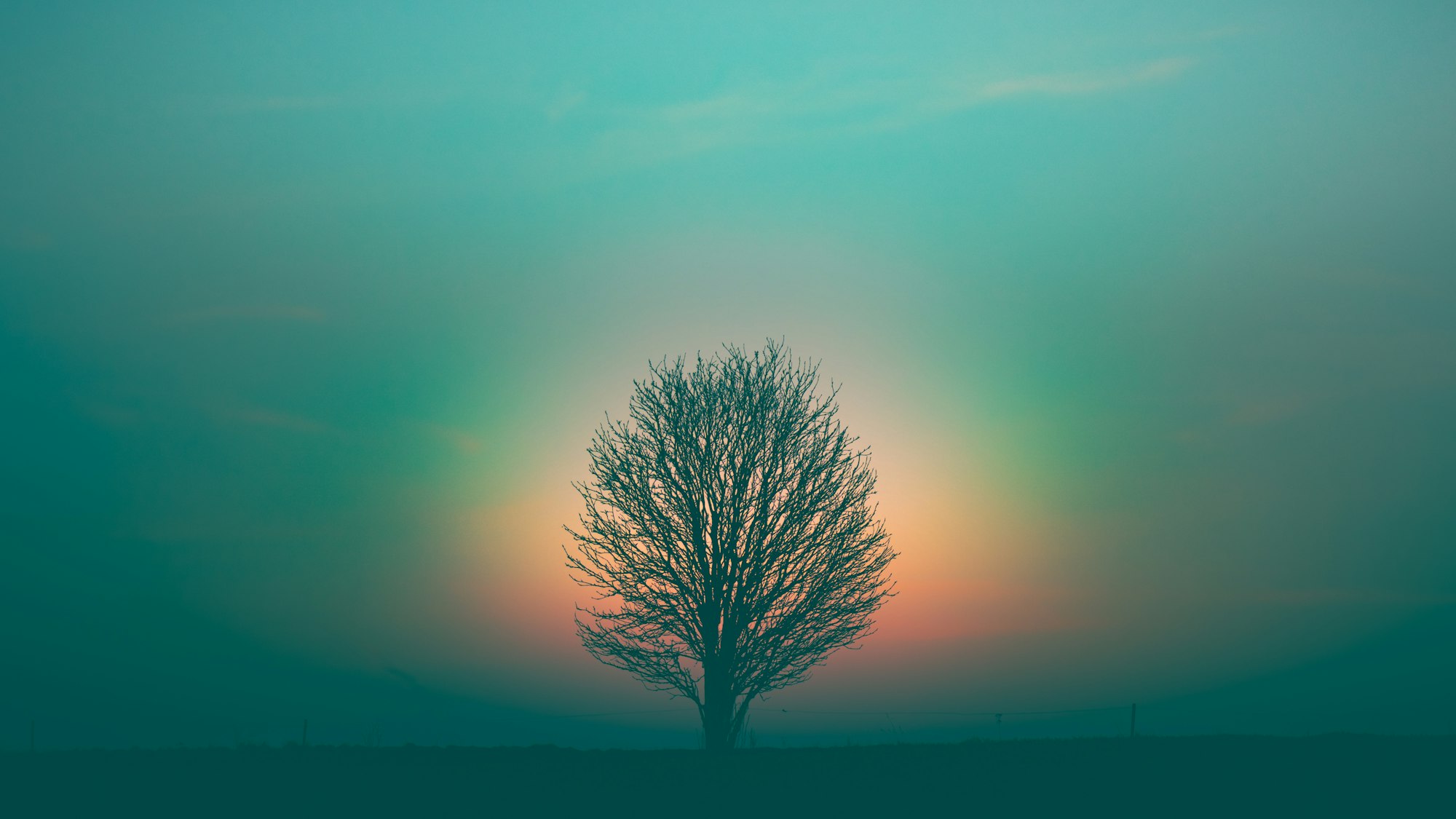What Does Spirituality Mean?
Spirituality. It's become a broad term used by many different people for many different reasons. Yet what does it even mean? I'm going to talk about what spirituality entails and how it can mean something very different to what you may think.

Spirituality.
It's become a broad term used by many different people for many different reasons.
Yet what does it even mean?
In this article, I'm going to talk about what spirituality entails and how it can mean something very different to what you may think.
Everyone has a different definition.
When you hear 'spirituality,' it's important to remember that everyone has a different definition of it. Spirituality has represented many things through the ages with all sorts of connotations. It means different things to different people for different reasons. Some people will connect spirituality to faith, experience or whatever is beyond our understanding.
People may experience spirituality through meditative exploration, a feeling of deep connection, one's religious beliefs and even astrology, reiki and many new-age healing techniques. Eastern cultures may also have very different interpretations of spirituality than western cultures. This may be true when even talking about one belief system that has more than one way of practice.
This means that the term is almost entirely subjective and is a personal experience for each individual. What one may experience as ordinary can be highly spiritual to others. Indeed, in cultures associated with mindful practices, even routine activities such as drinking tea or breathing consciously can be deeply spiritual experiences.
Spirituality can be associated with religion.
Spirituality is a personal journey that can be connected to religion, but it isn't necessarily religious. It doesn't require belief in any particular creed or dogma. Spirituality is not a philosophy or political ideology. Rather, it can simply be viewed as an individual's search for meaning and purpose in life.
If you were to ask someone if they are spiritual, they might describe their faith as being part of the reason why they feel connected with the world around them. Indeed, for many people, their first encounter with spirituality is through their religious teachings and practices. Yet it's important to understand that while spirituality can be viewed through this perspective, it also has a different meaning for many people who weren't raised in an organised religious system.
You don't have to believe in a higher power.
Even though the majority of people who are spiritual believe in God, spirituality itself doesn't depend on your belief in a higher power.
Spirituality can be thought of as the connection we have with ourselves and others, our place in nature and the universe; it's about finding meaning in life, happiness and goodness. This doesn't mean that you have to adhere to any particular belief or set of values to be spiritual. This includes the belief in any sort of higher power, whether monotheistic, polytheistic or deistic.
For example, you might choose not to believe in God at all but still feel deeply connected with nature or humanity. Of course, many may not see how you can be spiritual without believing in a higher power. Yet before many of the major religions were formed, cultures existed that were deeply spiritual without the beliefs that prevail today.
The point is that you can choose to belive in a higher power or not and still experience spirituality on many different levels.

It doesn't exclusively refer to the supernatural.
There is scepticism and even cynicism in particularly many Western cultures, where spirituality conjures visions of irrational delusion and charlatanism. Saying that you are a spiritual person may even be met with a degree of suspicion. This has much to do with the limited exposure to deeply spiritual philosophies that lie outside of orthodox religions. It's true that many people regard spirituality as involving supernatural elements. However, there are many spiritual practices that also have nothing to do with the supernatural.
Meditation is a prime example of a very simple and natural process that can create a deep sense of connection to oneself. The same goes for yoga, mindfulness, deep introspection and even the use of naturally-occurring psychedelics to induce experiences within the mind. There is a tendency to associate spirituality with supernatural causes exclusively and this simply isn't the case. Spirituality can in fact be seen as revealing and exploring the limits of one's own nature and needn't be loaded with any additional descriptive baggage.
The benefits of being spiritual.
So why do so many people consider themselves or aim to become spiritual? Other than having what is perceived as a truer understanding of themselves or existence itself, why do so many people have such a strong attraction to spirituality? Here are just some of the reasons why:
Calmness
Spirituality can help people stay centred, calm and focused. It's easy for us to get stressed out about little things when we let our minds run away from us. Spiritual practice can help keep these thoughts under control so that we can live more peacefully in the present moment. Also, when one believes in more than just themselves, it can help to provide perspective and clarity which helps to anchor the senses and diminish the ego.
Connectedness
Spirituality helps people feel more connected with others and the world around them. By feeling connected to something greater than ourselves—whether it be a higher power or the inifinte expanse of the cosmos—we become more aware of our place in this world. This feeling of connectedness can be very healing, especially if you've been through a difficult experience or have had to deal with loss and grief.
Purpose
Spirituality can help you through difficult times in your life by giving you hope and a sense of purpose. It can help you to expand your perception of something bigger than yourself, whether that's your sense of self or the universe. It may give you a mission and direction in life, which can be highly beneficial for your mental health. It can also help you to think about others and the effect that you have on them, allowing you to develop empathy for others and build healthy relationships.
Wellness
Spirituality is valuable because it makes you feel good about yourself. You can learn to accept who you are without judgment and realise that there's more to life than just what meets the eye. This can help people who struggle with low self-esteem or depression feel better about themselves so they don't have to feel as if they are suffering alone or that their future is without hope or meaning. Spirituality can help people to realise just how much potential for growth exists within them on a lifelong journey of self-development.
Spirituality can improve your health.
Spirituality can help improve both your mental and physical health through meditation, prayer and reflection. Spiritual practices such as yoga or meditation may increase the activity in areas of your brain associated with self-awareness, empathy and compassion for others.
It has now been observed that regular meditation can actually change your brain activity in positive ways over time. By turning inward, you can gain insight into who you are and how best to live your life. This kind of self-exploration can lead to greater self-awareness and self-acceptance—which are both essential for mental health.
A spiritual person's life is often filled with more joy and less stress than someone who isn't as connected with their inner self. They have a sense of peace that comes from believing that the universe is a place of love and understanding, rather than fear and confusion.

Spirituality is what you make it.
Spirituality is a personal matter, and it can look different for everyone. It doesn't have to follow any rules and can be experienced to different degrees.
A lot of people might assume that spirituality is only something religious people do, but this isn't the case. Spirituality can mean being connected with yourself just as much as it can mean being connected to a higher power. In fact, some people who consider themselves atheist or agnostic may still choose to practice certain spiritual traditions—the key is finding what makes them feel fulfilled.
Spirituality can also be about celebrating life and giving thanks for your blessings. It's about connecting with nature and feeling gratitude for the natural beauty all around you. It's about realising that you have the power to change yourself and those around you by choosing how you react to situations and people.
A simple definition.
So what is my take on spirituality?
I define the human spirit simply as the immaterial aspect of ourselves. Anything that can't be touched yet belongs to us comprises our spirit. This includes our emotions, thoughts, intelligence, creative capacity, desires, dreams, behavioural tendencies and countless other intangible qualities that occupy and operate within our bodies.
Spirituality can be seen as a journey of self-discovery. As such, it can help you find your purpose in life, understand your place in this universe and how you fit into the world and connect with others.
Spirituality is an individual pursuit and that is what makes it so powerful. No one can tell you what spirituality means to them; only you know how important it is for yourself.
Final Thoughts.
While there are many ways to define spirituality, at its most basic it can be described as an individual’s inner journey. This journey is about understanding and connecting with yourself, others, and the world around you. You can explore spirituality through many different traditions, practices, and beliefs. While spirituality may be difficult to define, it can be easy to recognize when you see it.
You may have a spiritual experience while looking at a beautiful sunset or being moved tremendously by a piece of music, art, or literature. Whether it’s a deep connection with nature, an experience of transcendence, or simply feeling at peace with yourself and the world around you, spirituality is about connecting with something beyond your material self.
It doesn't have to be anything more than this.
For more like this, subscribe to get all the latest content and weekly newsletter delivered straight to your inbox if you're not already a member. This includes further tips on mindful living plus in-depth guides, tips, insights and advice.
Namaste. 🙏🏽
Ronin is an entrepreneur, creative, writer and expert in meditation, mindfulness, wellbeing & yoga plus founder & CEO of mello, a pro-active wellbeing platform.